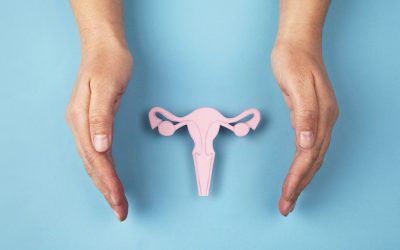You’ve no doubt seen the stickers flooding your social media feeds over the last few weeks. As more and more of your peers — and parents, coworkers, mentors and favorite celebrities — cast their votes in the 2020 election, you may feel inspired by civic duty or disgusted by the options waiting for you on the ballot.
Or maybe a little of both?
But regardless of how you feel about voting this year, if you haven’t made a plan to do it yet, now’s the time.
Today, November 3rd, is your last chance to cast a vote in this year’s election.
We could end this post right here and just put VOTE in large, banner letters. Lots of businesses have been in on the action this year, so we’d be in good company.
But since this blog is dedicated to healthy living (and informing our audience about health insurance stuff), we thought we’d point out something you might not know.
Because, as it turns out, voting is actually good for your health.
Surprised? Us too.
But research consistently supports the idea that voting can boost your mental health. And in a year that’s been particularly hard for our collective psyche, casting your ballot may help you kick off November on a more positive note.
(Even if the election doesn’t turn out like you hope.)
Still need to vote but still not sure it’s worth it? Here are four ways that voting might improve your health (according to science).
#1) Voting could actually lower your stress.
This might seem counterintuitive since talking about politics is a surefire way to rile up your pals and neighbors. But the act of voting has been shown to lower people’s stress in various studies.
In one study, college students who were actively engaged in politics reported fewer symptoms of depression.
In another, a Harvard School of Public Health study that created a women’s political participation index, researchers found that a single unit of improvement in the index resulted in 7.3 fewer deaths per 100,000 women, as reported by Think from NBCNews.com.
And in another, a group of people who were told they could vote in a hypothetical election had higher satisfaction rates when their party won than those who weren’t allowed to vote.
Civic engagement can make you happier, which may help ward off symptoms of depression and stress. Experts theorize that it’s because people want to be involved in something greater than themselves, pointing to the “I Voted!” stickers as supporting evidence for this mentality.
#2) When you vote, you tend to make other good choices, too.
Research has also shown that people who vote tend to make other responsible life choices, like eating better and exercising. They may also have higher levels of education.
One 2018 analysis of surveys from young people (ages 11 to 20) showed that volunteering and voting both had net positive effects on participants’ outcome in life. The surveys followed this group of over 9,000 young people for 15 years, starting between 1994 and 1995. By the end, the people who voted and volunteered had higher incomes, more education and better health than their uninvolved peers.
Interestingly, activism doesn’t have the same net positive. The same study found that young people who were active in marches and rallies were more likely to engage in risky behaviors, like substance abuse. Researchers suspect that this is because activism can lead to burnout more quickly, especially without any short-term gains.
In other words, volunteering and voting are seen as positive forms of civic engagement. Activism, by contrast, is viewed as oppositional, which may be why it’s more mentally taxing.
#3) Voting also gives you a sense of empowerment.
Not only can voting help alleviate stress, but it also might help people who are already distressed feel better about themselves.
As reported in Medical News Today, one study followed a cohort of women from 1968 to 1999 to assess the psychological effects of political participation. These women were interviewed 20 times over the course of two decades, and the findings were published in 2001.
That study found that participants already “prone to psychological distress” were more likely to benefit from political participation.
And that’s likely because taking part in politics — voting, for example — gives you a sense of empowerment.
Being able to shape the future, even with something as seemingly small as the act of voting, helps people feel more in control of their own lives. This is especially true for groups that have been marginalized, oppressed or disenfranchised in some way.
In other words, voting is one way to “fight back” against society’s ills.
#4) And it connects you with your community.
Want to make the world a better place? Start with where you live. Voting can help you feel more connected to your community. In turn, being actively engaged with your community can help you stay active in the politics that shape it.
Engagement = participation = engagement. (And so on.)
Plus, it’s easier to view people on the other side of the political aisle as Others if you don’t know their names and faces. When you get to know them (and your community), you might be able to come together on more issues than you think.
Voting is more than an abstract.
The things — and people — you vote for have a direct impact on how you live and work, especially at a local level. Take the time to engage in politics for your community’s sake. Helping other people has also been shown to reduce stress and make you feel happier.
Helping others and yourself at the same time? That’s a win no matter who you vote for.
The polls are open. Get to it.
Besides your own mental health and overall well-being, voting is good for the country and the causes that matter to you. It can sometimes feel like we, as individuals, don’t have a loud enough say in how things run. But that’s what voting is for.
So, get out there and cast your ballot if you haven’t yet.
Not sure where to go or whether you can even vote? Some states allow voting in person on Election Day even if you’re not registered yet. Start with this page at USA.gov to find more state-specific election info.







